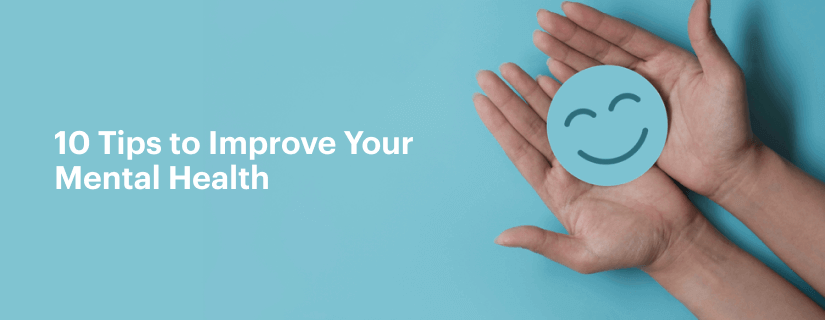-
Doctors
-
Specialities & Treatments
Centre of Excellence
Specialties
Treatments and Procedures
Hospitals & Directions HyderabadCARE Hospitals, Banjara Hills CARE Outpatient Centre, Banjara Hills CARE Hospitals, HITEC City CARE Hospitals, Nampally Gurunanak CARE Hospitals, Musheerabad CARE Hospitals Outpatient Centre, HITEC City CARE Hospitals, Malakpet
HyderabadCARE Hospitals, Banjara Hills CARE Outpatient Centre, Banjara Hills CARE Hospitals, HITEC City CARE Hospitals, Nampally Gurunanak CARE Hospitals, Musheerabad CARE Hospitals Outpatient Centre, HITEC City CARE Hospitals, Malakpet Raipur
Raipur
 Bhubaneswar
Bhubaneswar Visakhapatnam
Visakhapatnam
 Nagpur
Nagpur
 Indore
Indore
 Chh. Sambhajinagar
Chh. SambhajinagarClinics & Medical Centers
Book an AppointmentContact Us
Online Lab Reports
Book an Appointment
Consult Super-Specialist Doctors at CARE Hospitals
Types of Stress: Causes, Symptoms and How to Cope
Updated on 5 September 2023

Stress is the psychological and physiological response to a situation that presents itself as a threat or challenge.
Stress activates the small part behind the brain known as the hypothalamus. The hypothalamus secretes hormones that trigger our fight or flight response. As per studies, the primary hormone released is cortisol which increases the glucose levels in our bloodstream. This enables the body to efficiently carry out the brain and muscle repair functions. At the same time, it inhibits inessential functions such as the reproductive and digestive systems.
The second stress hormone- adrenaline- makes it easier for the muscles to use the increased glucose level in your bloodstream. The bodily functions return to normal once the stressful event has passed.
A small amount of stress is considered positive. For example, if one has an exam the next day, positive stress will help students in avoiding procrastination and take action for the test. However, too much level of stress can have a negative impact on our health including anxiety disorders, depression, burnout, digestive problems, obesity, and heart disease among others. In this article, we will cover the types of stress management and tips to fight stress.
Hence, in order to counter stress, let us now have a look at the types of stresses:-
Types of stress
1. Acute Stress:
- Short-term and temporary stress response to specific situations or demands.
- Typically triggered by immediate stressors like deadlines, exams, traffic, or sudden unexpected events.
- Involves activation of the body's "fight-or-flight" response, releasing adrenaline and cortisol.
- Can be manageable and may provide a burst of energy and focus to tackle challenges.
- Resolves once the stressor is removed or the situation is resolved.
2. Episodic Acute Stress:
- A pattern of repeated episodes of acute stress experienced by individuals.
- Common in people who are prone to worry excessively, have a pessimistic outlook, or take on too many responsibilities.
- Often characterized by a sense of constant crisis, dealing with one problem after another.
- Individuals may exhibit symptoms of persistent tension, irritability, anxiety, and physical health issues related to stress.
- It involves identifying the root causes of stress, adopting healthier ways to cope with it, and considering professional support if necessary.
3. Chronic Stress:
- Long-term and persistent stress that persists over an extended period.
- Arises from ongoing life circumstances or chronic stressors such as work pressures, financial problems, relationship issues, or health conditions.
- Can have profound effects on physical, emotional, and mental health if left unmanaged.
- Prolonged exposure to stress hormones like cortisol can lead to cardiovascular problems, weakened immune function, digestive issues, sleep disturbances, anxiety, and depression.
- Managing stress involves making significant changes to lifestyle, utilizing stress-reducing methods like relaxation and mindfulness exercises, practicing good time management, seeking support from others, and seeking professional help when needed.
Symptoms of Stress
Stress can impact various aspects of your health and well-being, even if you're not aware of it. Here are some signs and symptoms of each type of stress.
Acute stress
- Widened pupils: During the fight-or-flight response, our pupils dilate to enhance visual perception in response to potential threats.
- Increased heart rate: This physiological reaction can mimic palpitations and is a typical component of the fight-or-flight response.
- Increased sweating: Stress elevates body temperature, leading to heightened perspiration.
- Rapid, deep breathing: Another aspect of the fight-or-flight response, this serves to increase oxygen intake to aid in reacting to stress.
- Anxiety: The sensation of worry and fear triggered by exposure to stressors.
- Emotional fluctuations: Stress often manifests as irritability and mood swings.
- Sleep disturbances: Anxiety and the hormonal changes of the fight-or-flight response can disrupt normal sleep patterns.
Episodic acute stress
- Muscle tension: This is a protective response aimed at preventing injury and pain. When exposed to recurring acute stress, our muscles remain tense without the chance to relax.
- Overwhelm: This is the sensation of being unable to cope or envision effective solutions to stressors.
- Increased anger and irritability: We may find ourselves reacting more strongly and frequently to situations, even those that would typically be tolerated.
- Migraines: Often a result of persistent muscle tension, migraines can become more frequent and severe with recurring acute stress.
- Hypertension: Many individuals may not be aware of having high blood pressure. The most reliable way to detect hypertension is through professional blood pressure measurements.
Chronic stress:
- Weight gain: Often caused by "stress eating" or hormonal imbalances from long-term stress.
- Insomnia: Difficulty falling and staying asleep, leading to a lack of feeling rested despite sleep.
- Panic attacks: Sudden episodes of intense fear and anxiety accompanied by acute stress symptoms.
- Chronic headaches: Frequent tension headaches occurring more than 15 days per month.
- Emotional exhaustion: Feeling consistently tired regardless of rest or sleep quality.
What Causes Stress?
Stress can arise from various factors, including:
- Past traumatic experiences, abuse, or sudden unexpected events can lead to stress.
- Dealing with health problems, chronic illnesses, or caring for a sick family member can cause stress.
- Significant life changes such as moving, starting a new job, getting married, or experiencing a loss can induce stress.
- Pressure, demands, deadlines, excessive workload, or academic pressure can lead to stress.
- Concerns about financial, debts, or financial instability can be a significant stressor.
- Difficulties in relationships, conflicts, or family issues contribute to emotional stress.
- Stress can also stem from exposure to noise, pollution, or uncomfortable living conditions.
Understanding the sources of stress and finding healthy ways to cope with them is crucial for managing stress levels and maintaining overall well-being.
How to Identify Stress?
Identifying stress involves recognizing both physical and psychological signs that indicate your body and mind are responding to pressure or tension. Here are some common signs and symptoms that can help you identify stress:
Physical Signs of Stress:
- Muscle Tension: Feeling tightness or knots in your muscles, especially in the neck, shoulders, or back.
- Headaches: Frequent or worsening headaches, including tension headaches or migraines.
- Fatigue: Feeling tired or exhausted even after adequate rest.
- Sleep Problems: Difficulty falling asleep, staying asleep, or experiencing restless sleep.
- Digestive Issues: Stomachaches, indigestion, nausea, or changes in bowel habits.
- Rapid Heartbeat: Feeling like your heart is racing or pounding.
- Changes in Appetite: Eating too much or too little, or experiencing cravings for certain foods.
- Breathing Changes: Shallow breathing, breathlessness, or sighing more frequently.
- Increased Sweating: Not related to physical activity or heat.
- Weakened Immune System: Frequent illnesses or infections.
Psychological Signs of Stress:
- Anxiety: Feeling nervous, apprehensive, or on edge.
- Irritability: Easily becoming frustrated, agitated, or moody.
- Difficulty Concentrating: Trouble focusing or making decisions.
- Memory Problems: Forgetfulness or difficulty recalling information.
- Emotional Outbursts: Crying spells, anger, or emotional sensitivity.
- Feeling Overwhelmed: Sense of being unable to cope with tasks or responsibilities.
- Negative Thinking: Pessimism, constant worrying, or expecting the worst.
- Loss of Interest: Decreased motivation or interest in activities you once enjoyed.
- Depression: Persistent feelings of sadness, hopelessness, or worthlessness.
- Changes in Behavior: Withdrawing from social interactions or engaging in unhealthy coping mechanisms like substance abuse.
Consequences of Stress
The consequences of prolonged or chronic stress can impact various aspects of both physical and mental health:
- Anxiety disorders: These are characterised by an inability to manage emotional reactions in various situations. These disorders often involve ongoing fear and worry, hindering everyday functioning. Panic disorders and post-traumatic stress disorder (PTSD) are included within this category, leading to long-term physical health implications due to increased stress levels.
- Depression: It's a feeling of helplessness, sadness and decreased self-esteem, no motivation, no energy, and no creativity. It impacts thoughts, emotions, and behaviours, impairing daily functioning and causing disinterest in previously enjoyed activities.
- Burnout results from prolonged stress, causing mental, emotional, and physical exhaustion, often accompanied by self-doubt, detachment, and a negative perspective.
- Stress can influence the pace of food movement in the intestines, potentially leading to digestive issues such as irritable bowel syndrome, inflammatory bowel disease, and ulcers. Stress has also been linked to weakening the intestinal barrier, affecting the immune system.
- Chronic stress elevates adrenaline and cortisol levels, contributing to heart-related problems. This can lead to high blood pressure and arterial hardening, straining the heart and limiting blood and oxygen supply.
- Stress-induced eating changes can result in both overeating and undereating. Stress eating may lead to obesity and related health problems, while chronic stress causing reduced food intake may result in undernourishment.
- Stress must be managed by healthy coping mechanisms such as exercise, relaxation techniques, seeking social support, and practising meditation to reduce its negative influence on health and well-being. Seeking expert support or counselling when stress becomes unbearable is also recommended.
Ways to fight stress
Let us now have a look at the various ways to relieve stress
- Exercise - Exercising is one of the most effective ways to manage stress. It releases serotonin, dopamine, and endorphins among a variety of hormones. This helps regulate our mood and takes us to our original state.
- Healthy lifestyle - As per studies, 30 minutes of exercise is mandatory for every individual to maintain a healthy lifestyle.
- Utilize mindfulness - Mindfulness and relaxation breathing techniques can be utilized by everyone to manage stress effectively. Utilizing our five senses to immediately gain control over our negative feelings and deep breathing to let go of any detrimental thought processes is an efficient way to cope with stress.
- Try therapy and coaching - Another way to handle our stress is to seek professional help. Gaining different insights and perspectives into our own functioning helps us regulate stress-causing hormones.
- Time management - Noting down our stress triggers and also managing our time usefully can help reduce our stress. Finding the right work-life balance and doing things we love makes us mentally healthy.
- Spend time in nature - Taking time off from our normal routine and spending it in nature helps us with stress. Sunlight, self-care routine, and fresh air inhibit the effect of stress-causing agents.
- Eat healthily - Following a proper diet ensures that our body gets the right amount of nutrients which is a prerequisite to healthy and happy living since a good diet plan also stabilizes our mood.
- Spend time with friends and family - Being with the right social circle is a major step in managing stress. With good company, we also tend to let off our negative feelings and it helps in stress management.
Conclusion
As we have seen stress is a major issue in the fast-paced world but identifying it by supervising its effects and then taking necessary steps to manage it can make us more healthy, happy, and wise. We should also know our triggers and take precautionary steps against them so that we can evade stress.
FAQs
1. Why is stress management important?
Ans: Stress management is important because excessive or prolonged stress can have detrimental effects on physical and mental health. Effective stress management techniques help reduce the impact of stress, improve overall well-being, enhance resilience, and lower the risk of stress-related health issues such as heart disease, anxiety disorders, and depression.
2. What are the 5 stress management skills?
Ans:The five key stress management skills include:
- Time management: Organizing tasks and priorities to reduce stress from feeling overwhelmed.
- Relaxation techniques: Using methods like deep breathing, meditation, or yoga to calm the mind and body.
- Problem-solving: Developing strategies to address and resolve stress-inducing problems.
- Healthy lifestyle choices: Maintaining a balanced diet, regular exercise, and sufficient sleep to support overall health.
- Social support: Seeking help and support from friends, family, or professionals to cope with stress.
3. Can I test for stress?
Ans: Yes, there are various methods to assess and measure stress levels. Some common stress tests include:
Questionnaires: Self-report questionnaires that assess stress levels based on responses to specific questions related to stress symptoms, coping mechanisms, and life events.
Physiological measurements: Techniques such as heart rate variability (HRV), cortisol level testing, and blood pressure monitoring can provide indicators of stress levels.
Behavioral assessments: Observations of behaviors associated with stress, such as changes in sleep patterns, appetite, mood, and social interactions.
4. Which type of stress is more dangerous?
Ans: Chronic stress is generally considered more dangerous than acute stress. Acute stress is a normal response to immediate challenges or threats and is usually short-term. In contrast, chronic stress persists over an extended period and can have severe health consequences if not managed effectively. Chronic stress is associated with increased risks of cardiovascular disease, obesity, diabetes, mental health disorders, and other chronic illnesses.
5. What is the normal level of stress?
Ans: Stress is a natural reaction to life's challenges, and everyone feels it at times. Normal levels of stress can vary widely among individuals and depend on factors such as coping abilities, resilience, and personal circumstances.
Mild to moderate stress can be beneficial and motivating, while excessive or chronic stress can have negative impacts on health and well-being. It's important to manage stress effectively and seek support if stress becomes overwhelming or interferes with daily life.
To Book an Appointment, call:
ENQUIRY FORM
SELECT CATEGORIES
-
Neurosciences (16)
-
Neurology (37)
-
Neurosurgery (14)
-
Orthopaedics (48)
-
Oncology (33)
-
Obstetrics and gynecology (52)
-
Pulmonology (23)
-
Urology (20)
-
Nephrology (13)
-
Psychiatry (7)
-
Dietetics and Nutrition (111)
-
General Medicine (63)
-
Cardiac Sciences (32)
-
Vascular & Endovascular Surgery and Interventional Radiology (15)
-
Gastroenterology (46)
-
Endocrinology (23)
-
Plastic Surgery (10)
-
Critical Care Medicine (5)
-
COVID-19 (16)
-
Dermatology (16)
-
Emergency Care (1)
-
Ophthalmology (4)
-
Pediatrics (14)
-
Laparoscopic and Bariatric Surgery (8)
-
ENT (15)
-
Kidney Transplant (1)
-
Liver Transplantation and Hepatobiliary Surgery (5)
-
General Surgery (3)
-
Internal Medicine (5)
-
Medicine Information
Attention Deficit Hyperactivity Disorder (ADHD)
YOU MAY ALSO LIKE
RECENT BLOGS
-

Preterm Birth (Premature Birth): Symptoms, Causes, Treatment and Prevention
13 May 2025
Read More
-

Rotablation Angioplasty: Benefits, Treatments, And Recovery Time
9 May 2025
Read More
-

What Is The Difference Between IUI and IVF?
9 May 2025
Read More
-

Venous Malformations: Causes, Symptoms, and Treatment
30 April 2025
Read More
-

Varicose Vein Foam Sclerotherapy: Treatment, Benefits, and Procedure
30 April 2025
Read More
-

Radiofrequency (RF) Ablation Treatment for Varicose Veins: Know More
30 April 2025
Read More
-

Varicose Vein Sclerotherapy: Treatment, Benefits, and Procedure
30 April 2025
Read More
-

Varicose Vein Endovenous Laser Ablation: Procedure, Benefits, Risks
30 April 2025
Read More
Have a Question?
If you cannot find answers to your queries, please fill out the enquiry form or call the number below. We will contact you shortly.







